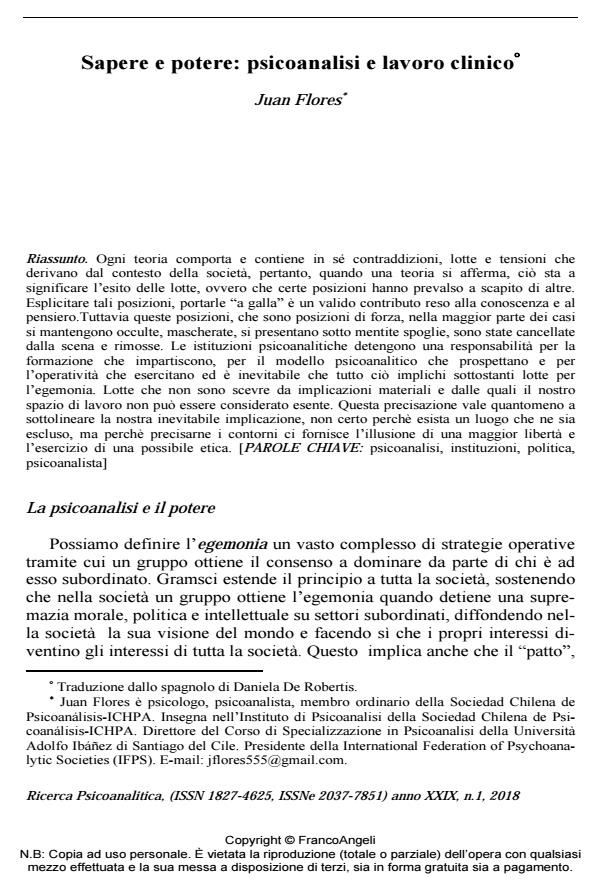Knowledge and power: Psychoanalysis and clinical work
Journal title RICERCA PSICOANALITICA
Author/s Juan Flores
Publishing Year 2018 Issue 2018/1
Language Italian Pages 20 P. 83-102 File size 216 KB
DOI 10.3280/RPR2018-001007
DOI is like a bar code for intellectual property: to have more infomation
click here
Below, you can see the article first page
If you want to buy this article in PDF format, you can do it, following the instructions to buy download credits

FrancoAngeli is member of Publishers International Linking Association, Inc (PILA), a not-for-profit association which run the CrossRef service enabling links to and from online scholarly content.
Any theory contains contradictions, struggles and tensions that derive from the social context, therefore when a theory prevails this highlights the outcome of the struggles and therefore the positions that prevailed. To make these positions explicit, to make them emerge, is a valuable contribution to knowledge and reflection. But these positions are strongholds and in most cases are kept hidden or disguised or have been cancelled or repressed. Psychoanalytical institutions are responsible for the training they provide, for the psychoanalytical model they offer and for the work they perform. This makes struggles for hegemony inevitable. Such struggles have material implications that must affect our work space. Therefore our implication is inevitable not because there are places that are exempt from it but because, if we can see their outline, we can have the illusion of more freedom and more ethics.
Keywords: Psychoanalysis, institutions, politics, psychoanalyst
Juan Flores, Sapere e potere: psicoanalisi e lavoro clinico in "RICERCA PSICOANALITICA" 1/2018, pp 83-102, DOI: 10.3280/RPR2018-001007